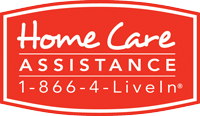The health benefits of exercise
are extraordinarily well documented. Regular exercise lowers your risk of a stroke by 27%, reduces instances of both high blood pressure and Alzheimer’s disease by 40%, cuts your chance of developing diabetes by 50%, and lowers your risk of developing colon cancer by a whopping 60%. As well, it obviously helps maintain a healthy weight. Plus, exercise has been shown to be just as effective at fighting depression as both SSRIs (like Prozac) and therapy.
A recent study from the Appalachian State University’s Human Performance Lab even showed that people who took a brisk walk five days a week had fewer and less severe colds and flus than sedentary control subjects. So it’s not just long-term chronic and fatal conditions that being fit staves off – regular exercise actually helps you battle the common cold too!
Beyond full-on exercise, however, a recent study out of Australia also shows the health risk of being inactive. The study from the physical activity lab at the Baker IDI Heart and Diabetes Institute in Victoria, Australia found that the more television its subjects watched, the greater risk they had of dying at a younger age, particularly from heart disease.
Subjects in the study who watched four hours or more of television per day were 80% more likely to die from heart disease and 46% more likely to die from all causes, even when factors such as: education levels, overall health, age, past smoking, waist circumference, cholesterol levels, and blood pressure of the subjects was taken into account.
The study concluded that the real problem with television watching is that it is done while sitting, and sitting with extraordinarily little muscle movement. Such ‘extreme’ inactivity affects metabolism overall, not just during the time spent inactive. A study from July 2008 showed that standing engages muscles and promotes the distribution of lipase, a fat-absorbing enzyme that triggers the body to process fat and cholesterol. Most important, the benefits of this regular, unremarkable movement are independent from the amount of time subjects spent exercising.
That same study found that the health consequences that develop from too much sitting are very different and independent from those that result from too little exercise. Along with the recent Australian study, it found that the negative health consequences of prolonged periods of sitting – larger waistlines, higher bad cholesterol levels, lower good cholesterol levels, heart disease risks – were not fully counteracted by regular exercise.
In other words, regular exercise – beneficial as it is – doesn’t counteract the negative effects of long periods of inactivity.
Part of the issue is that television watching is fundamentally inactive. Harvard Health Publications estimates that, when it comes to calories burned, watching television (56 calories per hour) is closer to sleeping (46 calories per hour) than it is to sitting and reading (84 calories per hour), which itself is more akin to standing in line (94 calories per hour) than it is to watching television. (Note: calorie counts are for a 155-pound person.) In other words, watching television is as inactive as a person can get without sleeping.
Along with limiting television watching, these studies point to the importance of remaining active throughout the day. The good news is that it ends up that the simple physical movements of standing and moving between rooms has significant health benefits. When watching television, standing up during commercial breaks, going to get a glass of water, or even putting down the remote control and getting up to change channels and adjust volume the old-fashioned way can help people from staying in one extremely inactive position for extended periods of time.
Light household tasks and self-care – activities encouraged by the Balanced Care Method™ whenever clients are physically able – can help keep people moving. Not only does such daily activity help keep people physically active longer, we now know it also can help fight heart disease and other health risks
 Home Care Assistance,
Home Care Assistance,
1396 Hillside Avenue,
Victoria, B.C.
250-592-4881. 24 hour mobile # 250-217-8310
http://homecareassistancevictoria.ca

Leave a Reply